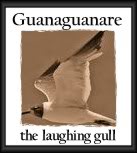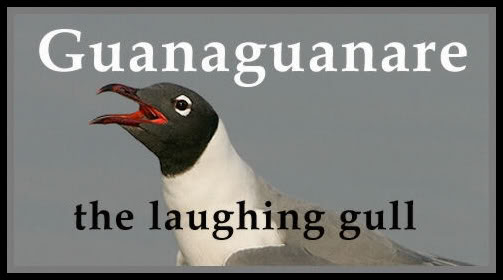 The term diaspora comes from διασπορά in the Ancient Greek language - prefix dia=through, followed by the verb sperein=to sow or to scatter. Literally it means a scattering or sowing of seeds. We use it today most commonly to refer to the dispersal of a country's people or ethnic populations throughout the world. Trinbagonians, being themselves the products of forced and voluntary relocations, have in many instances found themselves continuing this dispersal, with Trinbago having been just a stopover along the way.
The term diaspora comes from διασπορά in the Ancient Greek language - prefix dia=through, followed by the verb sperein=to sow or to scatter. Literally it means a scattering or sowing of seeds. We use it today most commonly to refer to the dispersal of a country's people or ethnic populations throughout the world. Trinbagonians, being themselves the products of forced and voluntary relocations, have in many instances found themselves continuing this dispersal, with Trinbago having been just a stopover along the way.
Luckily, this is often after remaining long enough to add more uniquely Trinbagonian footprints to our cultural landscape. After departure from these islands and arrival at new destinations all over the world, some Trinbagonians are faced with some choices. Culturally, they can continue to identify as Trinbagonians or they can revert to pre-diasporic identities - Amerindian, Chinese, Indian, African, or they can choose assimilation into the host culture and through their children merge even more completely.
Catáhua is an Andean Amerindian name for the Sandbox Tree. Also known as Hura crepitans, the tree has an unusual method of seed dispersal which is described as mechanical or self-dispersal. Unlike methods used by other plants which employ the conveyances of gravity, wind, water or animals, the dispersal method used by the Catáhua seems more deliberate, less passive. The seed pods ripen on the tree and when they attain the required dryness, the seed capsule ruptures suddenly, exploding with a loud cracking sound which has been likened to a gun shot. With this eruption, pod material as well as the flat round seeds are propelled far and wide.
For some Trinidadians who leave, there is a mixture of guilt and dismay. The guilt comes about because leaving often resembles abandonment - abandonment of family, friends, abandonment of the hope of succeeding and contributing here, abandoning the land itself. On the other hand, the dismay can set in when the departee dwells on the realization that there was nothing voluntary about the departure. Circumstances at home had forced the exit, and these could have included the perception of a lack of opportunities, the expectation of assault of some kind, the fact of having been assaulted and the pull factors of a safer, if not better life elsewhere. Whatever it is, what it comes down to is that Catáhua people are expelled people.
The Sandbox tree that is our nation understands that too many seeds near the base of the tree does not allow for optimum growth, either for itself or for the seedlings to come. It arranges it so that its seeds and as well, its survival as a species, will have the best chance possible. There isn't sufficient light or food or space for us all here. And the Catáhua does not wait for the wind or the waters or animals. Catáhua people are deliberately pitched far and wide to near and distant shores. But if circumstances should allow you to return or if the "saudade" drives you to claw your way back, don't think yourself foolish and please do ignore the, "What you come back here for?" comments. On the other hand, if you choose to or have no choice but to remain abroad, understand that even though you are not at the base of the tree which bore you, the life force that propelled you outwards hopes only that you will put down strong roots wherever you are.
Trinbago is not only a physical location. It is also a way of thinking and being that can comfort and sustain. Expulsion is sometimes a survival mechanism. Keep a Sandbox "flipper" in your pocket if you need a reminder!

..............................................................................................................................................
"Patria est communis omnium parens" - Our native land is the common parent of us all. Keep it beautiful, make it even more so.
Blessed is all of creation
Blessed be my beautiful people
Blessed be the day of our awakening
Blessed is my country
Blessed are her patient hills.
Mweh ka allay!
Guanaguanare













0 comments:
Post a Comment